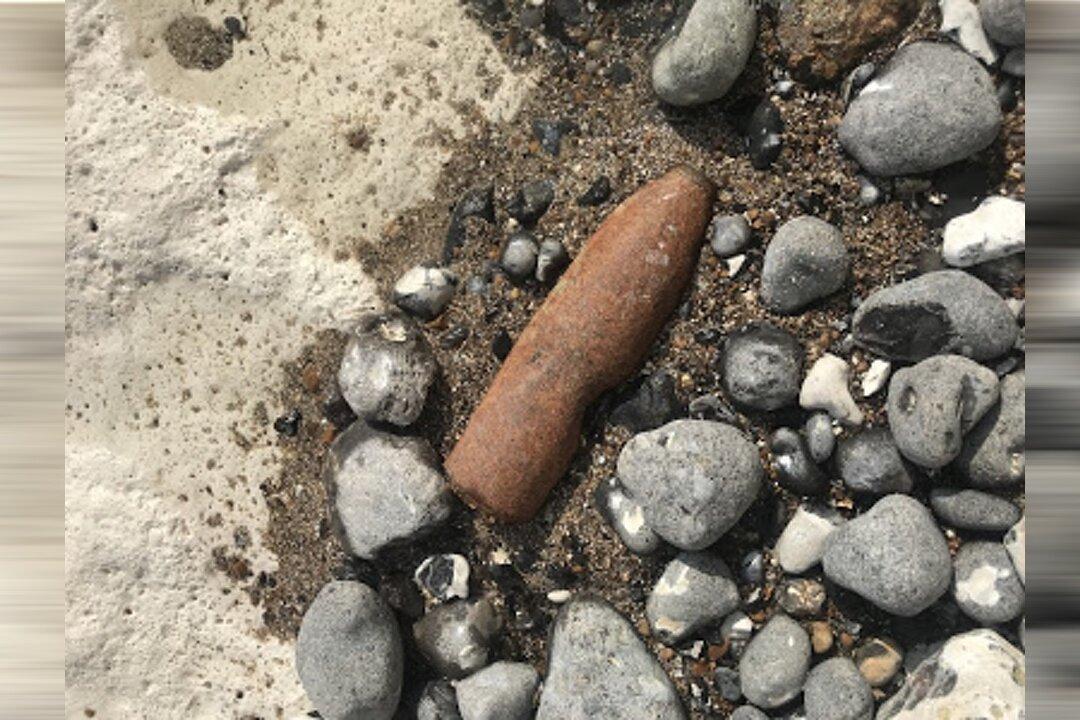An undetonated bomb was reportedly found at a British beach on May 19, sparking an evacuation. Authorities were planning a controlled explosion at low tide on Monday evening, but upon inspection, it turned out to an empty casing.
Her Majesty’s (HM) Coastguard, a section of the UK’s Maritime and Coastguard Agency received a call at 8:50 p.m. reporting an unexploded shell at Beachy Head “halfway between Belle Tout Lighthouse and Belle Tout layby,” according to a press release by the Maritime and Coastguard Agency.





